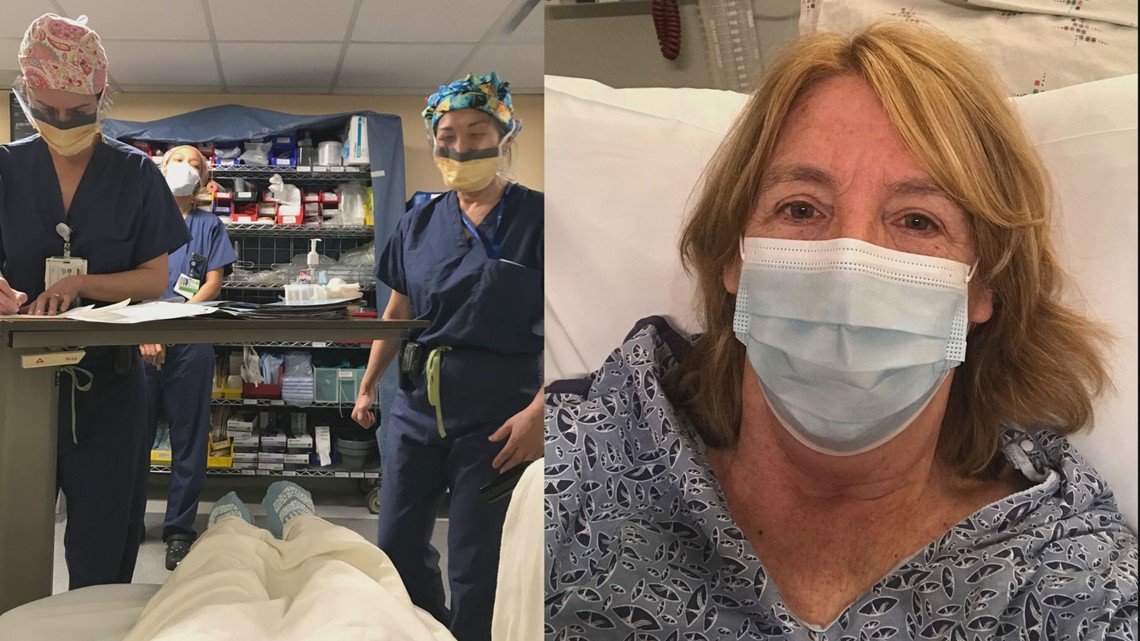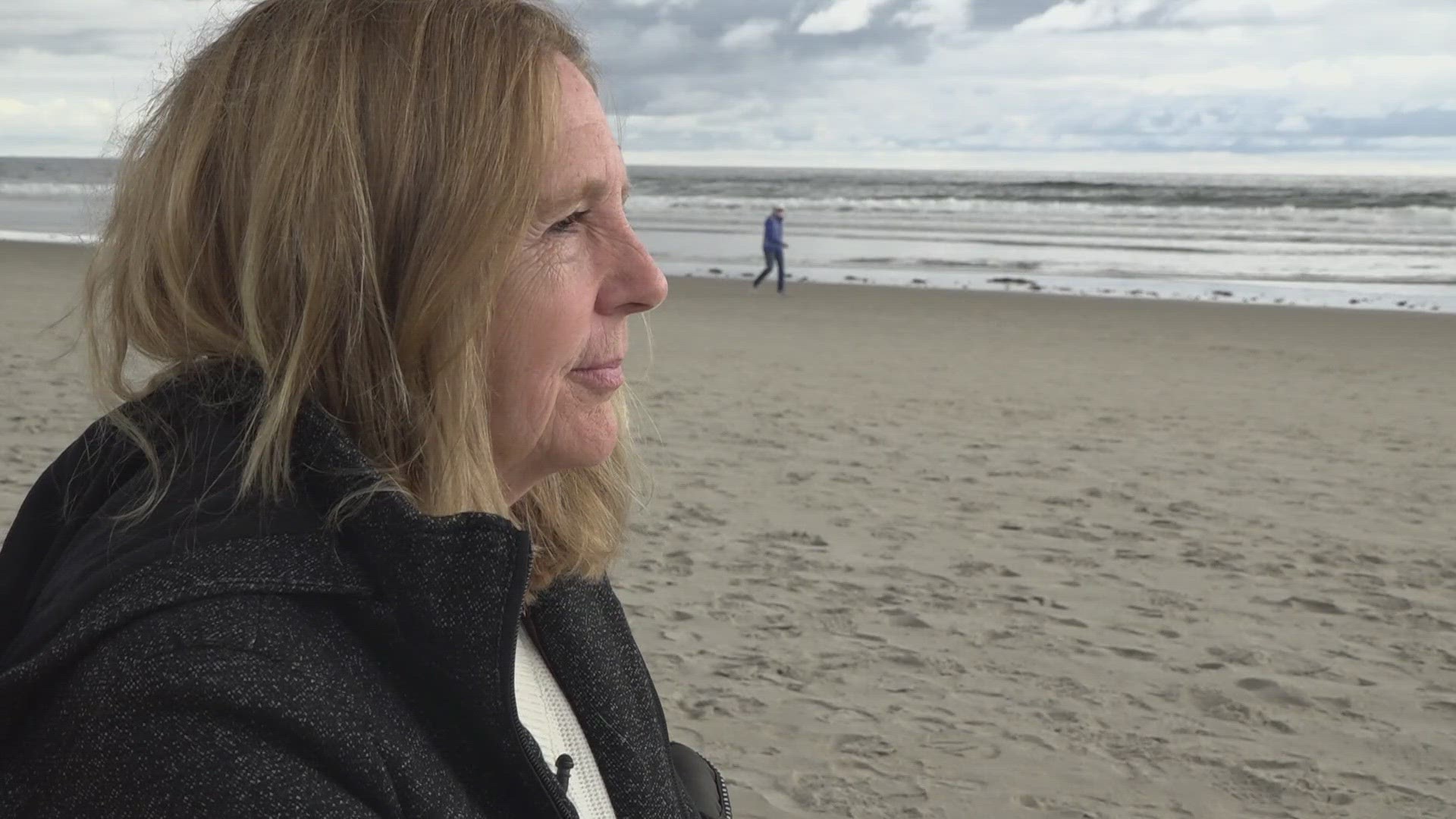OGUNQUIT, Maine — During this Breast Cancer Awareness Month, we are raising awareness of the journeys many people go through after being diagnosed with breast cancer.
Terri Olvera is from Dover, New Hampshire. Two years ago, she was diagnosed with stage 2 breast cancer.
Olvera said many women feel alone when going through any type of cancer, but especially when making the hard choice to get reconstruction or to "go flat" after a mastectomy, which is a type of surgery that removes one or two breasts as a way to treat breast cancer.
Olvera said if you are going through breast cancer, the whole point is to educate yourself and know that mastectomy without reconstruction is an option.
"It was a very, very difficult decision, but it was such the right one," Olvera said.
Olvera considers herself a "unicorn or a uni" as her cancer was only found in one of her breasts, so she decided to keep one and fully remove the other one. The decision to not get a reconstruction was something Olvera found online by researching and researching.
"One {option was} we could do a lumpectomy, where they would just take the tumor out and the area surrounding it, followed by radiation, or I could do a full mastectomy, take the whole breast off, and go have reconstruction to create a new breast," she explained.
Olvera said she was not given the option of a mastectomy without reconstruction by her doctor, and she felt upset about it.
"[My doctor] was pushing me to bring the plastic surgeon into that appointment, like really pushing me, and I said, 'Absolutely not, there is zero percent chance I would change my mind,'" Olvera told NEWS CENTER MAINE. "I hesitate to give you my honest answer, but I feel like the whole medical situation is meant to continue with the money, and if I chose reconstruction, I will have a number of surgeries, implants, and all these things that make a lot of money for these doctors and the hospitals, while my choice was 'one and done," Olvera said.
Olvera said it didn't take her long to make up her mind about choosing the "flat" option. She said it was the healthiest, with quicker recovery time, and no maintenance required.
Olvera is encouraging women to do self-checks on themselves.
"My hand just went there and I found something suspicious, so I took it to the doctor and had a biopsy and they confirmed it was hormone-driven breast cancer," Olvera said.
Karen Phelps is a nurse practitioner at the Breast Care Center at Maine Medical Center. Phelps said, to detect breast cancer early, women should keep an eye out for:
- skin changes like redness, rashes, and nipple inversions
- a palpable mass
- dimpling on the skin
- bloody nipple discharge
- staining of blood in someone's undergarment
- clear nipple discharge
"The awareness brought forward in social media and the amount of information available to patients on the internet has sparked more conversation with that [flat closure] when we meet with patients in consultation," Phelps said when asked about the trend she has noticed of mastectomies without reconstruction. "That's been a trend that we notice in our practice with our 4 surgeons."
Phelps said she does give the option of mastectomy without reconstruction to her patients.
"I have some patients who just don't want to really be bothered with having ongoing maintenance, for example," Phelps said. "So if I chose to have implants at some point, I may need to exchange those for a new set of implants."
Olvera said she found many Facebook groups and has made many new friends who are also considered a "flatty" like her.
"There are flatties everywhere," Olvera said. "So many women are coming forward and saying, 'You know what, I don't want to do a million surgeries.' And after being diagnosed with those awful three words, 'You have cancer,' you don't want to waste any time."
"They need to be really honoring what their own personal choice is," Phelps said. "I think a lot of medical experiences or health care experiences, our friends and family want to offer help, but it really comes down to being a very personal choice."
Olvera has a message for those making that tough decision.
"If you are facing mastectomy, you can do this," Olvera said proudly. "It's a hard road, but there is great, energetic, joyful life after breast cancer."


Olvera encourages people going through breast cancer to reach out to her as a support system. Here is her personal blog, where people can contact her.



